全球经济硕士
MSc Global Economy

学历文凭
Masters Degree (Taught)

专业院系
Central and East European Studies

开学时间

课程时长

课程学费

国际学生入学条件
2.1 Hons (or non-UK equivalent) in Social Sciences and Humanities, Business School Courses, Finance, Economics, Management, HR Management, History, Geography.
We may sometimes accept degrees with borderline in academic background at 2.1 Hons or non-UK equivalent.
We may sometimes accept degrees with 2.2 Hons or non-UK equivalent with significant relevant work experience
You are required to complete and submit a question-based personal statement explaining why you want to undertake this programme at Glasgow
IDP—雅思考试联合主办方

雅思考试总分
6.5
- 雅思总分:6.5
- 托福网考总分:79
- 托福笔试总分:160
- 其他语言考试:PTE (Academic) - 59 with minimum 59 in all subtests
CRICOS代码:
申请截止日期: 请与IDP联系 以获取详细信息。
课程简介
The Masters in Global Economy explores the history, shape and economic impact of contemporary globalisation, in a profoundly multinational, multilingual environment. The programme will enhance your understanding of the shape of the global economy and the institutions (formal and informal) that govern it. It is ideal for those who do not have a degree or background in economics or business but wish to explore the field.Why this programmeCentral to the programme’s curriculum is an understanding of how economic growth is (and is not) stimulated and sustained under conditions of intense global competition, and how institutions and infrastructure can play crucial roles in attracting appropriate economic activity.You will consider the respective roles of national governments and supra-national bodies in the global economy and interrogate the ways in which economic and business systems have an impact on the lives of citizens in both developing and developed countries.You will be encouraged to think about how your local economies fit into the broader global environment. The knowledge and skills gained could lead to enhanced trade capacity, improved economic understanding or decision- making by business or government, new products and services, or long-term capacity building, through the development of entrepreneurial skills.Topics covered include the study of international trade, the relationships between education, innovation and investment, foreign direct investment, multinational companies, and the impact of Global Value Chains and Global Production Networks – and the associated corporate social responsibility and global citizenship programmes.You may have the opportunity to spend up to three weeks in March at Kyoto University in Japan. You will attend specially organised classes, take part in study trips and site visits, and begin thinking about your dissertation. Places are limited and offered on a competitive basis.The programme will equip you to return to your home country and make substantial contributions in a wide array of fields such as local and national policy development, corporate management and third sector or advocacy groups, including those working primarily in environmental, educational or citizenship arenas.Career prospectsAfter completing this programme, you will have gained a strong and critical understanding of the extent, causes, shifting patterns and policies, tensions and implications of a more fully integrated global economy.Career opportunities and pathwaysAs a graduate of this programme, you will be well placed to begin your professional career. The interdisciplinary courses are designed to help you develop your employability skills as you will be tasked with reviewing a range of data, including:historical and recent case studiespolicy reportscorporate informationacademic literature.You will learn to analyse these different types of data within a global context. You will gain experience of team-working and presenting, as well as writing individually and with peers for a wide range of audiences.Career opportunities for graduates exist within:corporate organisations with a focus on global business and foreign tradeinternational non-governmental organisations (NGOs)policy-driven environments.
相关申请
 预科
预科 奖学金
奖学金 实习机会
实习机会 在校学习
在校学习 跨境学习
跨境学习 校园授课-线上开始
校园授课-线上开始 在线/远程学习
在线/远程学习
开学时间&学费
学费信息仅供参考,请与IDP联系以获取详细信息
| 开学时间 | 时长 | 学费 | 地点 |
|---|
学校排名

世界排名93
数据源:
泰晤士高等教育世界大学排名
关于格拉斯哥大学

格拉斯哥大学自1451年建校以来,始终致力于培养学生。该大学稳居全球百强大学之列,在2026年QS世界大学排名中位列第79位,在2025年泰晤士高等教育世界大学排名中位列第87位。2024年,格拉斯哥大学被《泰晤士报》和《星期日泰晤士报》优秀大学指南评为苏格兰年度大学。格拉斯哥大学是一所真正的国际化大学,拥有来自140多个国家的约43000名学生,并拥有超过9000名教职员工。它是英国顶尖研究型大学罗素集团的成员,也是Universitas 21(一个由全球研究型大学组成的网络)的创始成员。本科生可选择约100个单项荣誉学位和600多个联合荣誉学位组合。此外,大学还提供300多个授课型研究生课程和丰富的博士学位攻读机会。格拉斯哥大学毕业生就业能力位列英国前20名(QS毕业生就业能力排名,2022年),这意味着学生可以确信,他们的学位将为他们毕业后的生活做好准备。大学每年通过实习中心提供数百个实习机会,其强大的学生支持服务为学业、生活和财务方面提供帮助。格拉斯哥是英国第三大城市,被誉为全球友好且文化氛围浓厚的学生城市之一。格拉斯哥被誉为苏格兰的文化之都,拥有众多一流的博物馆、美术馆和建筑。格拉斯哥是英国第一个联合国教科文组织音乐之城,拥有 90 多个公园和花园、便利的交通和两座国际机场,为学习和旅游提供了理想的环境。
本校相关课程

动物学理学士(荣誉)
学历文凭
Bachelor Degree with Honours
开学日期
课程费用总额


BVMS兽医和外科
学历文凭
Bachelor Degree
开学日期
课程费用总额

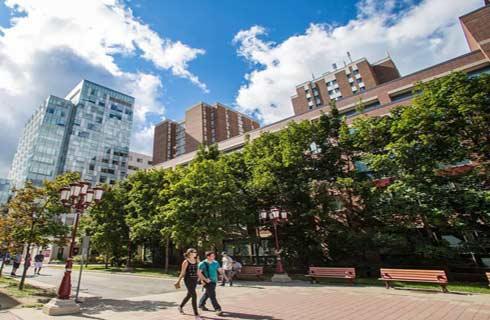
理学士(荣誉)兽医生物科学
学历文凭
Bachelor Degree with Honours
开学日期
课程费用总额


BD(MIN)(荣誉)神学和宗教研究
学历文凭
Bachelor Degree with Honours
开学日期
课程费用总额


文学硕士(荣誉)戏剧研究
学历文凭
Bachelor Degree
开学日期
课程费用总额


BTechEd(荣誉)技术教育
学历文凭
Bachelor Degree with Honours
开学日期
课程费用总额

其他相关课程

政治经济学文学士
 悉尼大学
悉尼大学泰晤士高等教育世界大学排名:54
学历文凭
Bachelor Degree
开学日期
课程费用总额

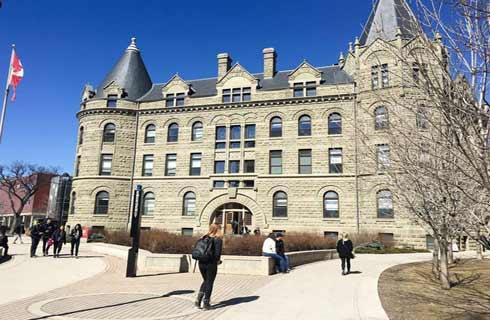
高中-12年级
 安斯伯利商业技术学院
安斯伯利商业技术学院学历文凭
Secondary School
开学日期
课程费用总额

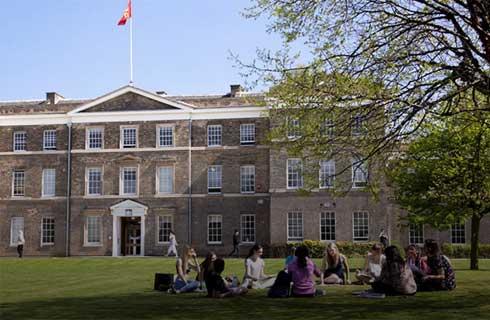
不列颠中学-IB课程
 温哥华公立教育局
温哥华公立教育局学历文凭
Secondary School
开学日期
课程费用总额


MPhil in Digestion and Delivery
 利兹大学
利兹大学泰晤士高等教育世界大学排名:118
学历文凭
Masters Degree (Research)
开学日期
课程费用总额

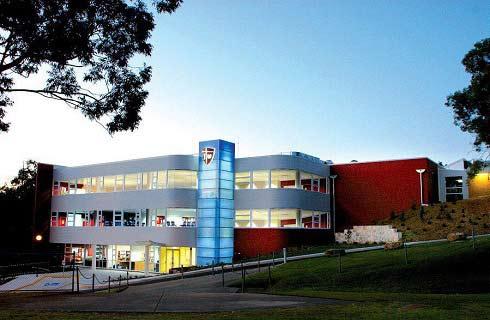
国际中学文凭(Grdae 8-10)
 素里教育局
素里教育局学历文凭
Secondary School
开学日期
课程费用总额

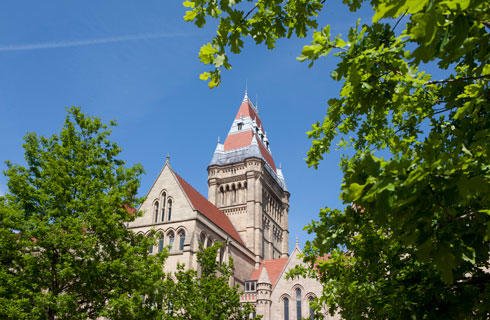
Juris Doctor
 皇家墨尔本理工大学
皇家墨尔本理工大学学历文凭
Masters Degree (Coursework)
开学日期
课程费用总额










